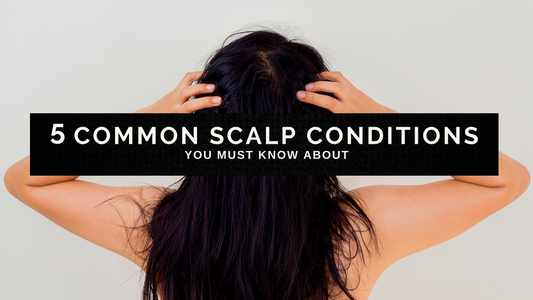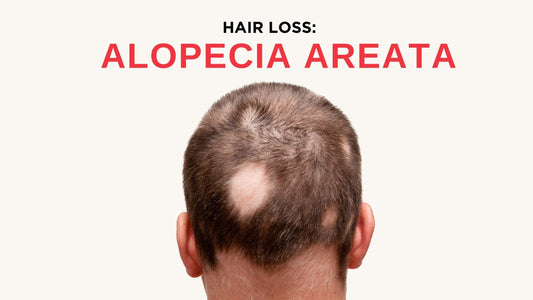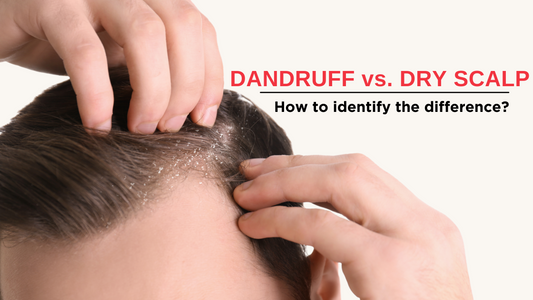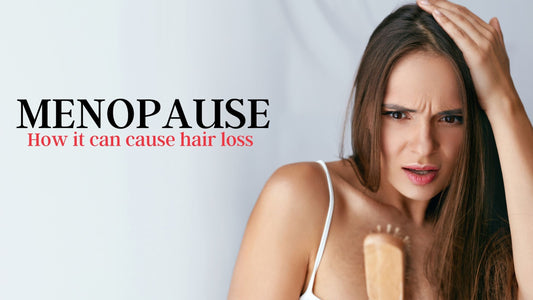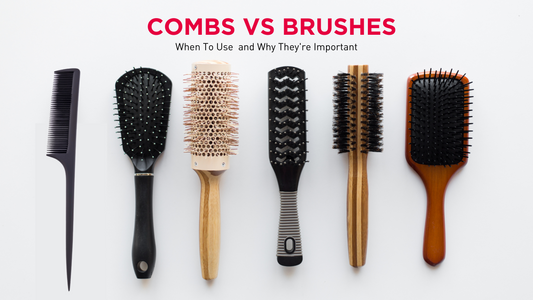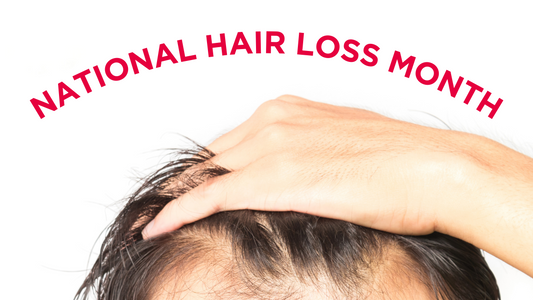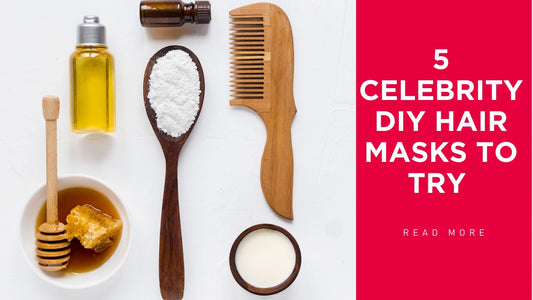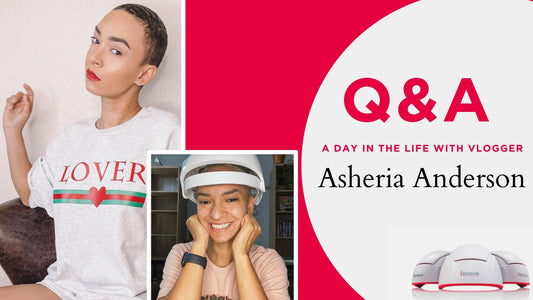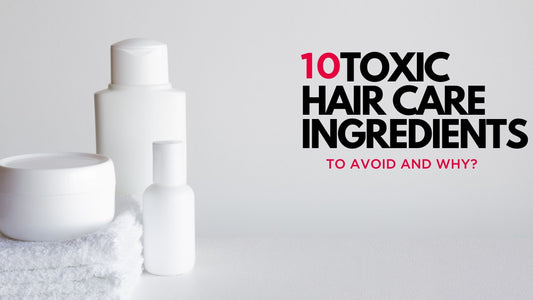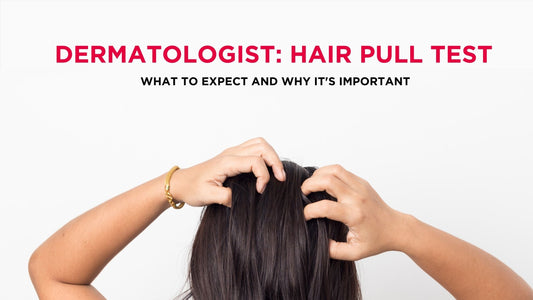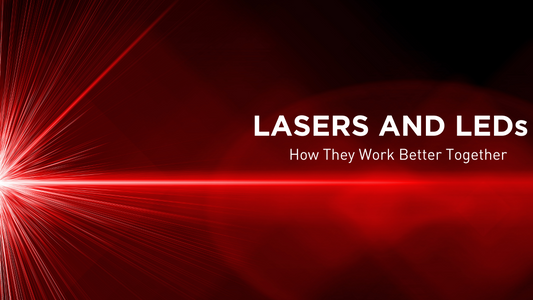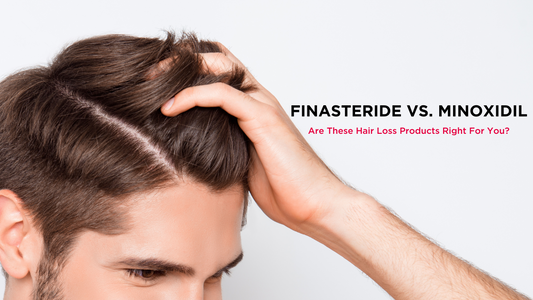The iRESTORE Blog
Confidence Starts Here


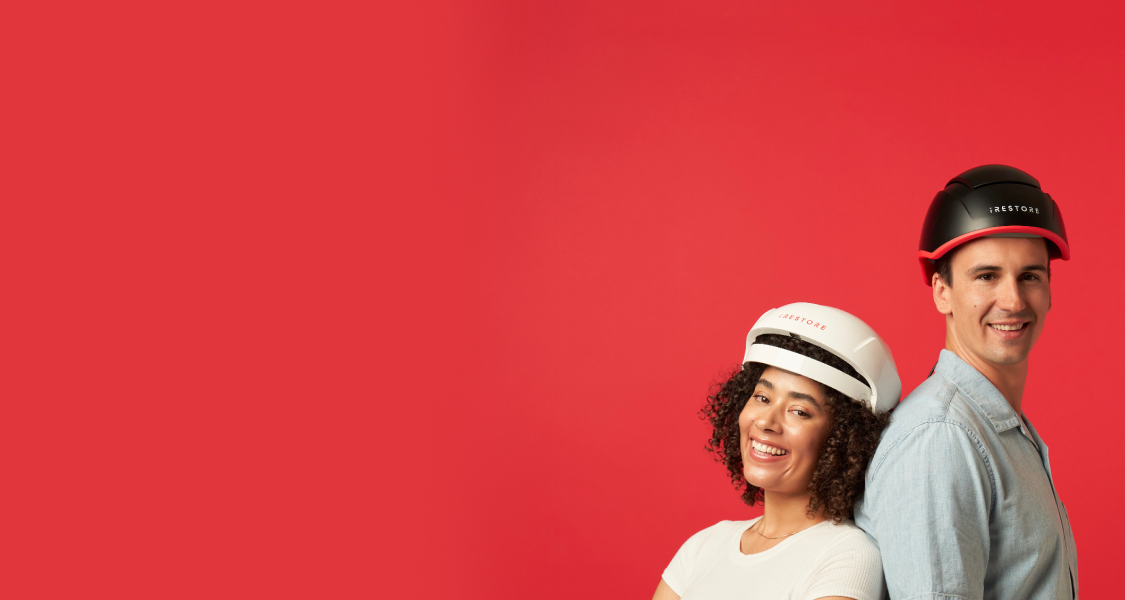

56 Results
5 Most Common Scalp Conditions You Must Know About
Here are five of the most common scalp conditions, along with symptoms you can look for and potential treatment options to keep your hair and scalp as strong as possible.
Read MoreAlopecia Areata: What are the Signs & Treatments available
One common form of hair loss is alopecia areata. And it’s essential to pay attention to sure signs that might indicate that you’re suffering from it.
Read MoreDandruff vs. Dry Scalp: How to identify the difference?
Almost everyone has experienced a dry scalp or dandruff. Today, we’ll look at each state in-depth to have a better idea of what you may be going through. Learn more here.
Read MoreMenopausal Hair Loss: How it can cause hair loss
Being a woman comes with a variety of hormonal changes that you’ll see throughout your lifetime. So, it’s essential to know that when your hormones change, you often encounter effects that you should be aware of. One defining moment of a woman’s life is menopause. And the symptoms of menopause can, of course, affect each woman differently. Whether it’s hot flashes, sleep issues, or mood swings, you’re bound to experience some traits out of the norm. One change that many women experience but are not as well-known is hair loss. Losing your hair during menopause is not an indicator of something wrong, but it can be pretty shocking to many. Here, we’ll take an in-depth look into menopausal hair loss and give some tips on what you can do to help handle it. YOUR HAIR GROWTH CYCLE Don’t panic if you start to see hair loss during menopause; it’s completely normal. Over 50% of women experience hair loss, and factors such as age, genetic factors, and diet play a role in experiencing hair loss during or after menopause. However, the main reason for hair loss during menopause is the declining levels of estrogen and progesterone in your body. Estrogen and progesterone are responsible for keeping your hair in the growing phase, which causes it to grow quicker and stay on your head longer. But when those hormonal levels drop, you’ll see your hair grow at a slower rate, along with more noticeable hair loss. Your body also creates more androgens during menopause due to the lack of estrogen and progesterone. Androgens shrink your hair follicles, which leads to hair loss. Ironically, androgens can also increase hair growth in other parts of your body, such as on your face. To better understand androgens and the different hair growth stages, check out our blog here regarding everything you need to know about the hair growth cycle! The Four Stages of Hair Growth As we’ve said before, daily hair loss is average so, it could be somewhat challenging to determine when the actual hair loss process begins. But you know your body and your hair, so it will likely become more evident to you at some point. If you’re noticing excessive breakage or more hair falling out than usual, consider talking to a doctor about menopausal hair loss. You can monitor it by paying attention to if you see more hair on your pillow, in the shower, on the floor, or in your hairbrush. And don’t worry, you shouldn’t expect to see sudden hair loss! Menopausal hair loss takes time and usually begins at your part-line and thinning at the front of the scalp. Hair Shedding Luckily, there are a handful of options to aid menopausal hair loss and thinning. From diet and lifestyle to supplements and treatment, be confident in knowing there are ways for you to address unwanted changes. As mentioned previously, diet plays an essential role in managing hormones. Licensed naturopathic doctor Kate Denniston recommends an anti-inflammatory and low-glycemic diet to help with menopausal hair loss. She also recommends a higher-fiber diet to stabilize your blood sugar and discusses bringing ground raw flaxseed into your diet to help increase estrogen activity. At iRESTORE, we recommend our delicious Hair Gummy Vitamins, which are filled with your daily dose of vitamins and fatty acids needed to repair your hair back to its former health. And our DHT Blocker Formula is a mixture of scientifically researched ingredients that helps overcome the effects of DHT, the hormone responsible for genetic hair loss. It’s also suggested to transition from regular hot styling machines to an ionic hair dryer, which uses less heat to dry hair and causes minor damage to your hair shafts. And, as expected, you should steer away from chemical hair treatments. For some, hormone therapy could be an option, but it would need to be explored under close medical attention. Since hormones play the most prominent role during menopausal hair loss, it could be beneficial to some. Through hormone therapy, women may notice an improvement in hair growth during treatment. However, this type of treatment would only be used if you’re experiencing multiple symptoms of menopause, not just hair loss. Last but not least is the growing popularity of red light treatment to promote hair regrowth at the scalp. Red light therapy is fascinating and highly effective, and for more information on the specifics, read our blog on everything you need to know about the process. At iRESTORE, our Professional and Essential hair growth devices are FDA-cleared to combat hair loss and hair thinning. By combining lasers and LEDs, we outshine other available devices, and people can expect to reverse thinning and see thicker hair within three to six months. Our devices see optimal results when paired with our Thickening Duo, which is professionally created to revive thinning hair, invigorate hair follicles, and repair damaged hair. So, when you start to notice some changes to your hair during menopause, revisit this blog and know that you are not alone! And that iRESTORE is your trusty support through these changes to aid in strengthening your hair. Join us on Facebook Groups for more hair loss tips. https://t.jo.my/irestore-fb-group
Read MoreComb vs. Brush: When To Use and Why They're Important
When thinking about our haircare, we often consider the products we’re putting on our hair, but how much do we think about how brushing or combing hair affects us? Join us as we take a deeper dive into brushing and combing, along with ways to adjust your hair tool routines to be more gentle on your locks.
Read MoreNATIONAL HAIR GROWTH MONTH: EVERYTHING YOU NEED TO KNOW
It's National Hair Loss Month join us as we take a look into the stages of hair growth and provide insight into the different reasons that could potentially disrupt your natural growth cycle.
Read More5 Celebrity DIY Hair Masks You Must Try
When we look at celebs on the red carpet or magazine covers, we see flawless skin and shiny hair. We often forget they are human, just like us. We often see celebs share many beauty tricks, and we found some worth sharing! Take a look at these 5 DIY hair treatments created by some of your favorite stars for the perfect look.
Read MoreQ&A with Lifestyle influencer Asheria Anderson
Asheria is a mother and a health & lifestyle influencer, who joined our iRESTORE family in 2020, the same year she was diagnosed with an autoimmune skin disorder. We are so excited to be a part of her growth journey and to share with you a special Q&A where she drops a few gems that you can pick up for your hair journey.
Read More10 TOXIC HAIR CARE INGREDIENTS TO AVOID AND WHY?
We know how difficult it can be to find reliable products for your hair journey. The average person has many products that they use consistently, but we’re unsure if they can honestly say they know what’s in them. We’re going to give you the lowdown on some ingredients to look out for when purchasing products.
Read MoreHair Pull Test: What is it and Why it's important?
Going to a Dermatologist can often be intimidating; believe us, we understand, and it is pretty standard. It's important to know when you should undergo a hair pull test and how results are determined because your body and health come first. Read more...
Read MoreLasers and LEDs: How They Work Better Together
Lasers and LEDs, we see and hear about them all the time. We throw these terms around but do we know what they are and what they are capable of, especially when it comes to hair regrowth, learn how iRESTORE uses the combination of both lasers and LEDs to create the ultimate hair growth device.
Read MoreFinasteride vs. Minoxidil: Are These Hair Loss Products Right For You?
Finasteride and minoxidil are the two most common hair loss treatments. Although they both work to achieve the same goal, they work in completely different ways. Let’s break minoxidil vs finasteride down and how iRESTORE can compare.
Read More